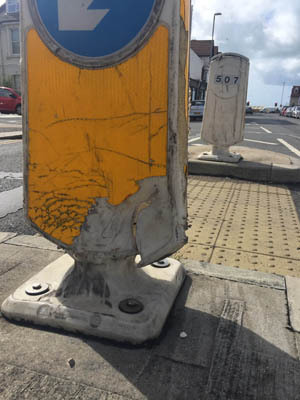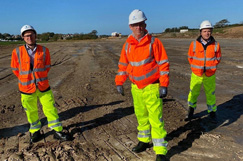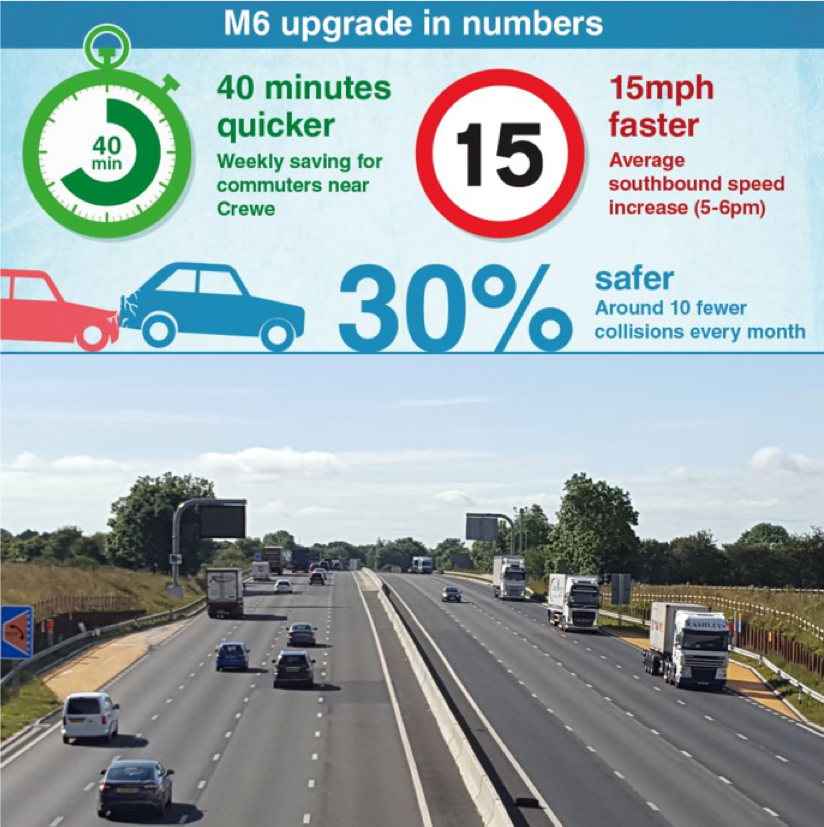To many in manufacturing, the word ‘Safety' has become an irritable hurdle. A hurdle that requires additional cost in design, raw material, production, testing and certification. It is a burdensome facet of every product that wasn't necessary in the ‘good old days' when what didn't kill you made you stronger and natural selection was the order of the day.
Building in safety into a product commences at the design stage – where most product design processes involve a form of FMEA (Failure Mode and Effect Analysis). From the safety aspect, this is basically a process whereby every possible failure of a product is thought out and as the prototype and production processes take place is then tested, verified and if necessary, countermeasures introduced to reduce risk factor or possible damage that could occur.
Take for example, a simple bollard or delineator pole.
In this instance, in the event of a vehicle collision, passive safety would have to be part of the design process for the concern that the pole would break or pop out and hit oncoming traffic. Thought would have to be given as to how to ensure that it would be designed to prevent the pole from being uprooted from its location, or if, in the event it was uprooted, that it would not lead to serious damage.

These design considerations might involve deeper screw-ins or plates to spread the load-bearing. It would also consider the materials used.
For a simple pole, this could involve stronger alloys to prevent breakage of fixings, stronger fixative or grout to keep the products in the ground.
In the case of breakage, weaker materials that would minimise risk – polymer materials that would bounce off windscreens instead of metals which could penetrate and cause damage to drivers. In addition, softer and more pliable polymers like polyurethane or rubber can bend easily and rebound and ideally survive collisions. Because of the nature of flexible polymers, especially those using plasticisers and other additives, issues such as adhesion to reflective materials might arise and other processes might be needed to increase adhesive strength (primers, sandpapering, flame treatment etc).
So, from a simple design standpoint, where the designer may have just been focused on visibility of the product, we have now introduced additional unexpected costs before commencing production. The added components that may have been deemed necessary add to the costs of procurement and production especially if new supply chains need to be sought.
Now we get into the costs of testing and certification…
Simulations are the most cost-effective way of proving prototype designs to estimate their safety. For a company wishing to roll out a portfolio of variants on the same product, in-house physical testing might be most valuable to validate different prototypes and models to ensure that confidence can be given before mass production commences. To set up in-house test facilities can be very costly and for small companies, prohibitively expensive.
In order to be placed on the market, marker posts and delineators fall under the class of Construction Products Regulations and thereby require testing by Technical Assessment Bodies and subsequent CE certification and auditing by Notified Bodies. For passive safety, the applicable standard is EN 12767. These costs are again quite exorbitant to the extent that to many, it might be a hurdle to duck under than jump over.
However, standards such as EN 12767 are drawn up to enable common products across the industry to be tested to the same test regime (same test parameters, same test conditions), usually categorising the results to simplify the results for ease of understanding for designers, manufacturers, local authorities and all specifiers.
This can aid a road designer to specify a specific category of Energy Absorption or Support Structure based on the nature of the road and the speed limit.
The work done by the manufacturer in designing the product in categorising the product becomes a simplified box-ticking exercise by the specifier. Any specifier or purchasing body should, of course, request test results on a periodical basis though, to ensure that due diligence has been carried out and that the manufacturer is not ducking the hurdle…
The Price of Safety
There are few people who do not have a friend, relative or colleague who has been directly affected by a traffic-related incident.
Traffic-related deaths are now the eighth leading cause of deaths globally. In the UK, it is also the leading cause of ‘accidental' death of children between 10 and 14.
Between 2003 and 2008, 11 road workers were killed and 104 were seriously injured on motorways and major routes in England. As one can imagine, there is no such thing as ‘closure' for most of these cases.
There is a moral, ethical and professional onus on all those involved in the entire chain of supplier through to procurement to optimise the element of safety that is built in to our roads and traffic products.
Between the desire of manufacturers to maximise profitability and tenders or procurers to minimise cost, the element of safety can often be an afterthought.
When balanced with costs of over £2m per road fatality, one would think that it is absurd that there would be a practice of ducking the hurdle and that the ‘hurdle duckers' can simply tick a box without any evidence to back up their safety claims.
In the field of traffic products, where most products are traffic ‘safety' products, those that do not meet the required specifications are in effect traffic hazards or worse.
The Future of Safety
The reason standards such as EN 12767 are in place is because they are established by experts in the industry and are designed to account for real life safety critical events. As design, material and production technologies develop, the standards will also develop to ensure and assure optimal safety. The perennial dilemma here is enforcement of these standards.
We are all taught from an early age that ignorance is not an excuse in the eyes of the law. There is a higher bar for any company involved with traffic that involves public trust.

All local and governmental authorities have 40% KSI reduction targets. Whilst it will not be possible to account for driver error, we have a duty to protect road workers, drivers and pedestrians alike by doing what we can to ensure that our products meet safety requirements.
The best way to do that is to incorporate safety in the design phase as early as possible, so that reiterations or redesigns are not necessary.
This also needs to be rigorously checked on the procurement end – while it may be difficult to understand, a buyer can save dozens of lives with the stroke of a pen.
So, rather than cheering on the fireman rescuing the baby from the burning house, let's design the house not to burn, and ensure that no planning permission is given until proof of testing is given.
Let's also remind all our operators and administrators that they have a valuable contribution in the prevention of road deaths.
If it can be shown how safety levels can be improved, let's do that, let's raise the bar of existing standards. This sorts the wheat from the chaff from the manufacturer's end and ultimately saves lives.
The Association for Road Traffic Safety and Management (ARTSM) plays a key role in safety, with its key objects being to:
- Improve road safety by promoting compliant quality products supplied by ARTSM members.
- Be the informed envoy of members to Government and Standards Bodies and to ensure
- that the standards and specifications produced are credible and practicable.
- Ensure that members are aware of relevant industry standards and policies.
- Engage in the resolution of non-adherence to mandatory standards.
We urge our members to raise awareness of safety issues and bad practice across the industry so that we can support the maintenance of standards and, where necessary, seek to raise them.
Our dispute resolution process is paramount to this and is impartial, thorough, and supportive to both claimants and respondents. We want to ensure safety is never longer regarded as a hurdle but rather as a beneficial advantage for everyone.
Sean Coffey is a member of the ARTSM executive committee































